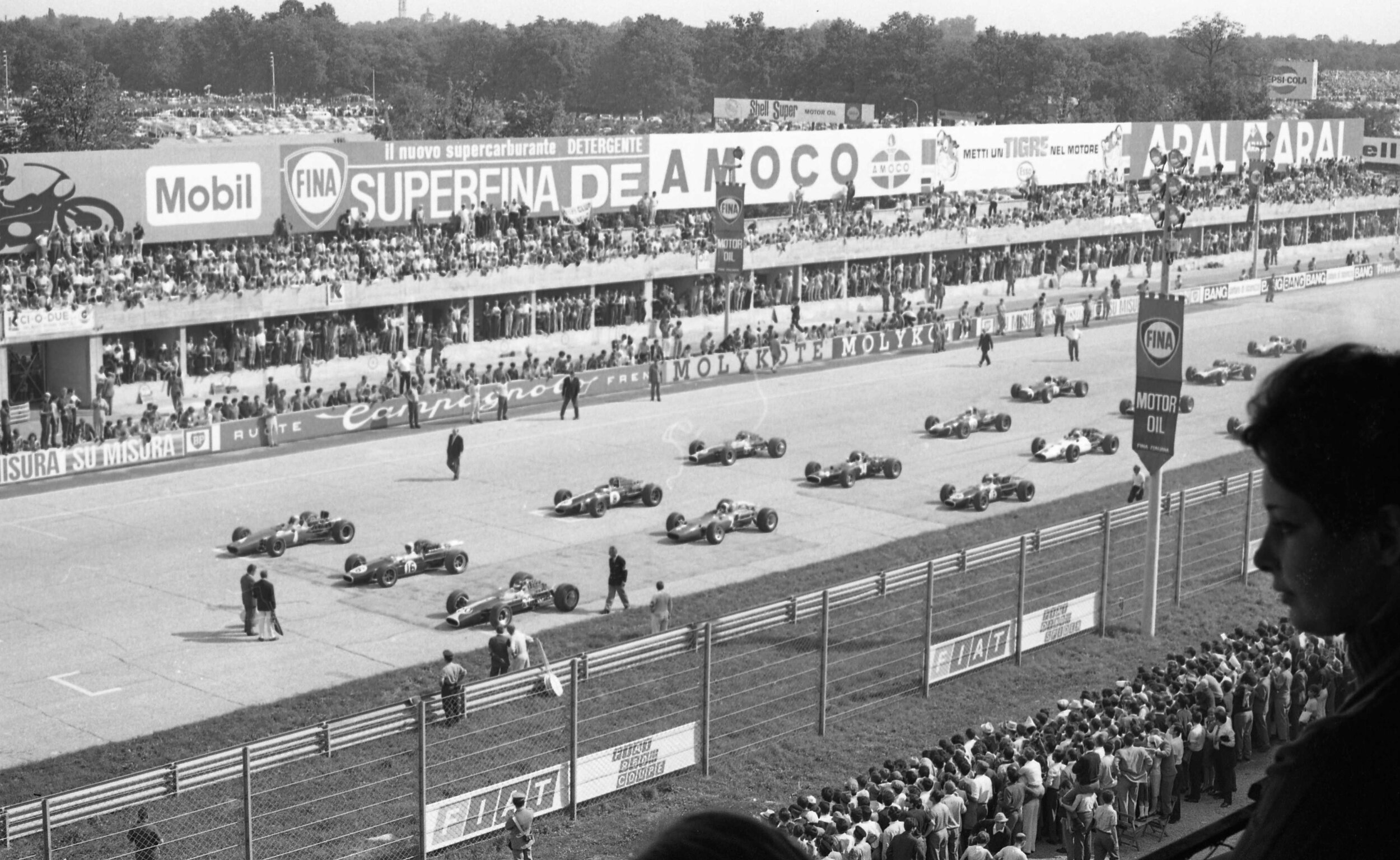This weekend 53 years ago. Italian Grand Prix, Monza
I am at the press tribune high in the grandstand opposite the pits. It was a long walk through a narrow steamy tunnel crowded with excited Italians. My starting grid picture below showed Clark (Lotus-Ford 20) on pole this side of the road, alongside Jack Brabham 18 and Bruce McLaren 4. Chris Amon (Ferrari 7) and Dan Gurney (American Eagle 8) are on row 2. Officials wait for all the cars to line up.
Clark led for 12 laps when a tyre blew. He lost a full lap changing it, some 3 miles in effect, and began fighting back from last but one. He caught up the entire field lap by lap, overtaking every other car, some twice. It was an astonishing accomplishment unique in modern grand prix racing. He gained the lead in the closing stages an entire lap faster than every other car.
Cruelly, he failed to win. In the final minutes he ran short of fuel, coasting in third, behind John Surtees giving Honda its first grand prix victory. Jack Brabham was second in his Repco after an astounding display by Clark in an era of clos racing. Grands prix were being decided in terms of seconds on a circuit famous for yards-apart finishes. It was a display of his faculty for controlled skill and judgement: outwardly calm, inwardly burning with a source of energy through indignation or frustration or whatever his motivation that day. Crucially it displayed how much speed Clark always had in reserve, how he could always extra find precision and judgement to the utter despair of his competitors.
Monza was so nearly a famous victory until the fuel pumps failed to collect the final few gallons in the bottom of the tanks. The picture below catches him, the white-oevarlled figure in the middle, striding back angrily from his abandoned car. He left Surtees to take the honours, blaming Colin Chapman for the failure. Convinced he was the moral victor Clark rounded on Chapman for miscalculating the fuel required for the race. JIM CLARK, Tribute to a Champion, by Eric Dymock.
Clark’s soaring adrenalin level after the best part of two hours’ racing made Chapman victim to a tongue-lashing that revealed a side of the two-times world champion rarely seen. Ten years before, when the Berwick and District Motor Club had, as Clark saw it, cheated him over some award he had deferred to its authority. Now all authority was his, and at such moments the mild-mannered former Border farmer could get very, very cross.
He still bit his nails (he said it was better than smoking). Yet Monza was a virtuoso performance worthy of Juan Fangio, Tazio Nuvolari, Rudolph Caracciola, Ayrton Senna, Stirling Moss, or any of the elite great drivers with a natural, almost mystical talent that exalted them into a class of their own. Walter Hayes, the Ford vice-president who played a key role in Clark’s career, said at a gathering in Edinburgh to mark the 25th anniversary of his fatal accident at Hockenheim: “He shared a birthday with Johann Strauss and Albert Einstein, and gave us a new kind of music and a very different theory of relativity.”

